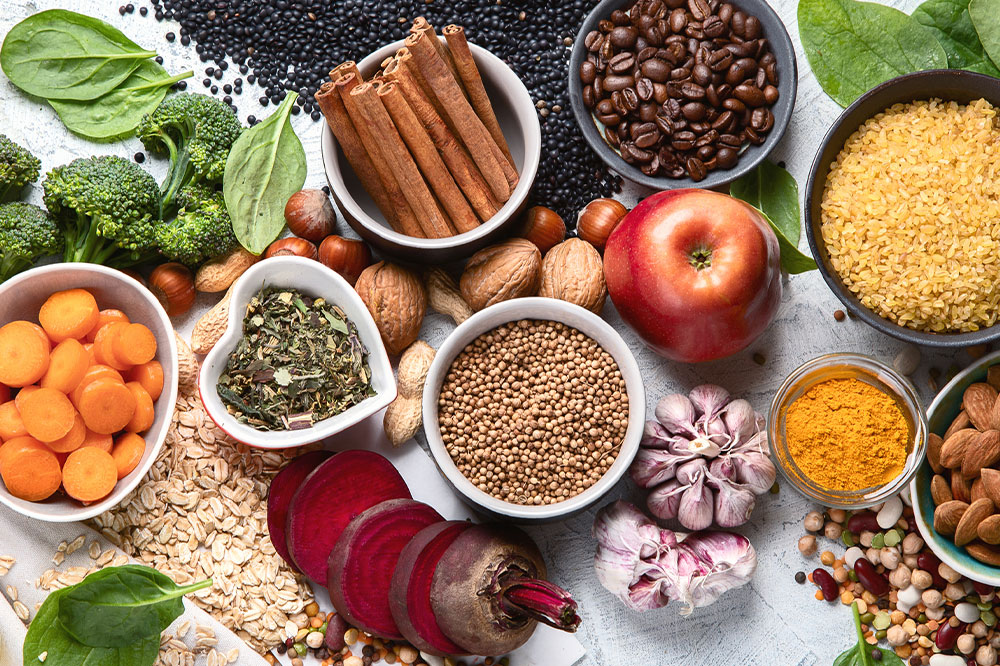Comprehensive Nutritional Strategies for Promoting Liver Health and Preventing Liver Diseases
This comprehensive guide explores vital dietary choices and lifestyle habits essential for maintaining liver health and preventing diseases such as fatty liver, cirrhosis, and hepatitis. It highlights foods rich in fiber, antioxidants, and anti-inflammatory compounds, including oatmeal, coffee, nuts, green tea, and leafy greens. Coupled with healthy lifestyle tips, these strategies can significantly reduce liver disease risk and promote overall wellness. Perfect for health-conscious individuals seeking to support their liver functions naturally and effectively.

Essential Dietary Habits and Lifestyle Modifications to Support Liver Wellness
The liver plays a vital role in maintaining overall health by managing metabolic processes such as detoxification, nutrient metabolism, and storage. Given its critical functions, safeguarding liver health is of paramount importance. Failure to do so can lead to severe health complications, including fatty liver disease, cirrhosis, hepatitis, and even liver cancer. Incorporating a well-balanced diet combined with healthy lifestyle choices can dramatically enhance liver function, reduce the risk of liver-related illnesses, and promote long-term wellness. This article explores detailed nutritional guidelines, specific foods, and lifestyle tips to help you maintain a healthy liver and prevent liver diseases.
Incorporate Fiber-Rich Foods such as Oatmeal
Oatmeal is renowned for its dense nutritional profile, especially high in dietary fiber, which is beneficial for liver health. Dietary fiber aids in reducing inflammation, supports weight management, and assists in regulating blood sugar levels—all of which are crucial for liver wellness. Regular consumption of oatmeal can mitigate risks associated with non-alcoholic fatty liver disease (NAFLD), which is often linked to obesity and insulin resistance. Moreover, oats contain unique antioxidants like avenanthramides that help fight oxidative stress, further protecting the liver from potential damage.
The Power of Coffee in Liver Protection
Extensive research has demonstrated coffee’s remarkable ability to support liver health. The bioactive compounds present in coffee, such as chlorogenic acids and polyphenols, possess anti-inflammatory and antioxidant properties. Regular moderate coffee intake has been associated with a lowered risk of developing chronic liver diseases, including fibrosis, cirrhosis, and hepatocellular carcinoma (liver cancer). Coffee's ability to stimulate liver enzyme activity enhances detoxification processes, making it a beneficial beverage for liver maintenance.
Nutrient-Dense Nuts: Almonds and Walnuts
Both almonds and walnuts are excellent sources of vitamin E, a powerful antioxidant that helps shield liver cells from oxidative stress and inflammation. Consuming a handful of these nuts daily can assist in preventing fatty liver disease by reducing fat accumulation and improving insulin sensitivity. They also provide healthy fats, magnesium, and other vital nutrients contributing to overall metabolic health, which indirectly benefits liver function.
Green Tea’s Antioxidant Properties
Green tea is rich in catechins—a class of antioxidants known for their liver-protective effects. Regular intake of 3 to 4 cups per day can help reduce liver enzyme levels, promote healthy liver regeneration, and prevent oxidative damage. These antioxidants support detoxification pathways and may reduce the risk of liver fibrosis and cirrhosis, making green tea a valuable addition to a liver-friendly diet.
Leafy Greens: Spinach, Kale, Broccoli, and Lettuce
Vegetables like spinach, kale, broccoli, and lettuce contain concentrated antioxidants, chlorophyll, and dietary fiber that assist in detoxifying the liver. They help neutralize free radicals, reduce oxidative stress, and support the body's natural detox pathways. Regularly consuming these vegetables can lower the risk of liver disease and cancer, thanks to their ability to combat inflammation and enhance liver enzyme activity.
Blueberries: A Rich Source of Polyphenols
Low in calories but packed with nutrients, blueberries are rich in polyphenols—powerful antioxidants linked to improved liver health. The anti-inflammatory and anti-fibrotic properties of blueberries have been associated with decreased risk of liver conditions. Adding a handful of blueberries to your breakfast or snacks can bolster liver resilience and protect against damage from oxidative stress.
In summary, a combination of these nutrient-rich foods, coupled with a balanced lifestyle including regular physical activity, adequate hydration, and avoiding excessive alcohol consumption, can significantly enhance liver health. Prioritizing a diet full of fiber, antioxidants, and anti-inflammatory compounds contributes to better detoxification, reduced fat accumulation, and decreased risk of developing serious liver diseases like cirrhosis and liver cancer. Embrace these nutritional strategies to foster a healthier liver and improve your overall well-being.





